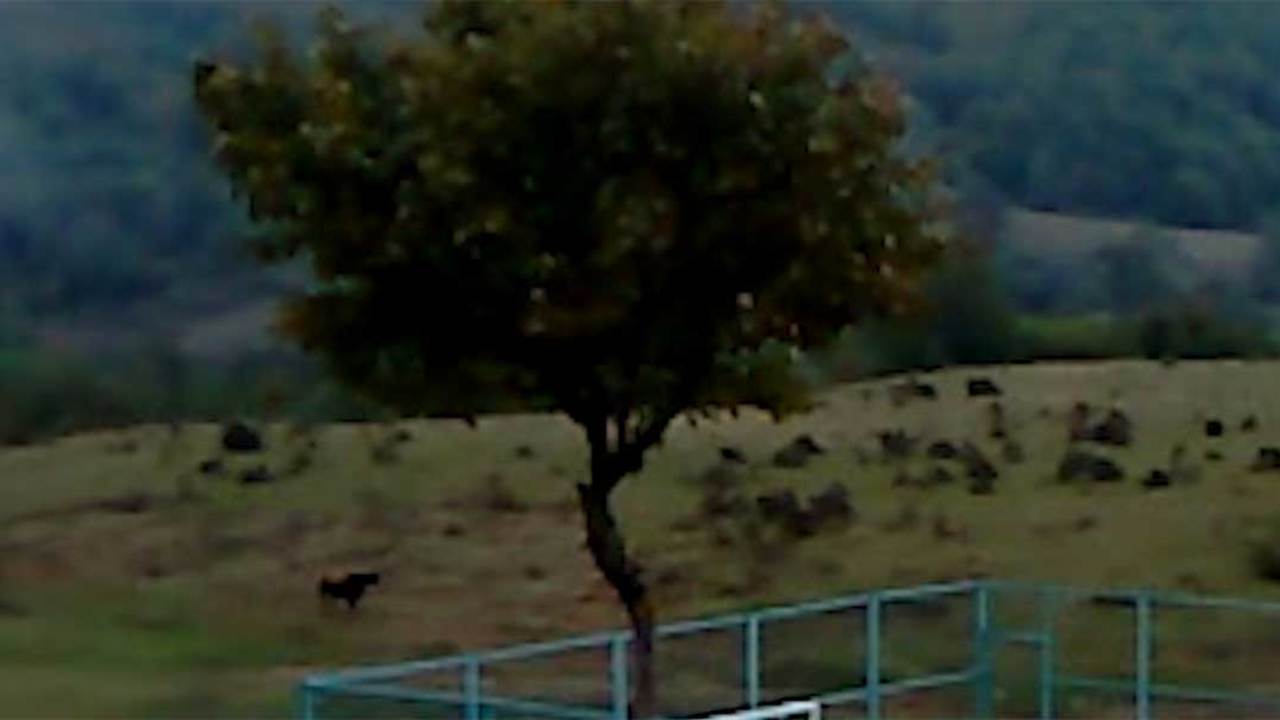Among the year’s most radical and mesmerizing experiments in form, Dry Leaf — the third feature from Georgian auteur Alexandre Koberidze — is a moving ode to uncertainty, the impermanence of nature, and the strength of family bonds.

Among the year’s most radical and mesmerizing experiments in form, Dry Leaf — the third feature from Georgian auteur Alexandre Koberidze — is a moving ode to uncertainty, the impermanence of nature, and the strength of family bonds.
The film’s loose plot is set in motion by the disappearance of sports photographer Lisa, in the midst of a project to document football pitches across rural Georgia. Rejecting a letter that requests she not be found, her father Irakli (played by the filmmaker’s own father, David Koberidze) sets off in search of her alongside her mysterious best friend Levani. Boldly granting as much weight to lyrical diversions through the natural landscape — replete with countless elegant animals and weathered goalposts — as it does with the searchers’ encounters and exchanges with the locals, what emerges is a peripatetic journey as melodic as it is meditative.
Trading the lush 16mm and crisp HD of his previous feature, the much-beloved What Do We See When We Look at the Sky? for a return to the Sony Ericsson mobile phone first used in his debut (Let the Summer Never Come Again), Koberidze’s lower-than-lo-fi images are frequently crushed and pixelated to the point of distortion, yet precise and ethereal enough to retain an indelible, cumulative grace. Bifurcated into two parts and featuring a gorgeous score composed by Giorgi Koberidze, brother of the director, Dry Leaf grows evermore abstract as it explores the meaning of fate and surrender, all the while further establishing Koberidze as one of contemporary international cinema’s most surprising and sensitive visionaries.
ANDRÉA PICARD
Screenings
Scotiabank 6
Scotiabank 10
TIFF Lightbox 4